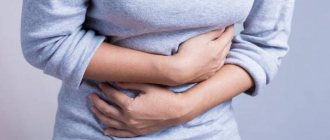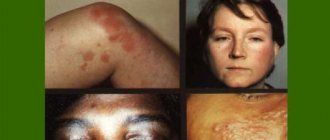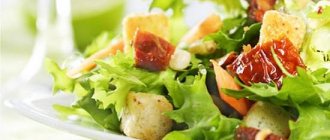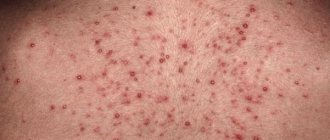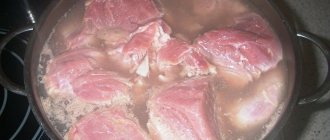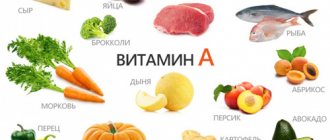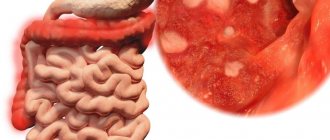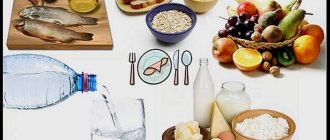Since all the pain in a sore throat is concentrated mostly in the throat, nutrition when treating a sore throat should be gentle and special.
In addition to a sore throat, inflammation of the tonsils is often accompanied by high body temperature, severe intoxication of the body and aching muscles and joints.
For this reason, many patients completely refuse to eat, which leads to an even greater deterioration of the condition.
Therefore, the diet for sore throat should be designed so that the food does not aggravate the sore throat, but provides the body with the necessary energy.
How important is nutrition for sore throat?
In addition to taking medications in a timely manner for sore throat, it is very important to maintain a drinking regime. Eating everyday food can cause even more severe throat irritation. Therefore, nutrition should be balanced and gentle.
Microbes that release toxins during illness cause the liver to work harder. That is why food should not be heavy: spicy, salty, fried foods should not be eaten.
What nutritional rules should you follow for acute tonsillitis? The basic principles are:
- It is necessary to reduce the protein content in the diet to 70 grams.
- Reduce the amount of fast carbohydrates to 300 grams.
- Fat should be no more than 60 grams.
- You need to eat 5-6 times a day in small portions.
- You need to steam, stew or boil, then grind or simply chop with a knife.
- The patient needs to make fortified drinks, prepare cereals, and give vegetables and fruits.
- You can't eat hot food - the food must be warm.
- If the patient does not have hypertension, an adult patient can drink a lot. Drinking plenty of warm water helps eliminate toxins (tea, jelly, milk, herbal infusions, compote).
Tea or other drink should not be very sweet. Warm chicken broth promotes rapid recovery of the body. You cannot force a patient to eat, as this can cause intestinal upset and severe bloating.
During illness, you cannot give a person foods that he has not eaten before, for example, exotic fruits. They can lead to the development of an allergic reaction. It is best to make small portions, but offer them more often.
If the patient refuses food and wants to sleep, you need to let him rest peacefully. Most likely, after sleep he will ask for food.
What you can’t eat with a sore throat, and what you can eat
One of the main problems with angina will be nutrition. A sore throat not only discourages the desire to eat, but also significantly interferes with swallowing food. What can and cannot be eaten if you have a sore throat? And how to eat so as not to aggravate the already severe pain in the throat?
This problem is exacerbated in children who simply refuse to eat.
Features of nutrition for angina
Acute tonsillitis or tonsillitis is one of the most common ENT infections. Its characteristic signs are inflammation of the tonsils, which entails an increase in body temperature to 38-39 C, redness of the throat, acute pain when swallowing, and sometimes (if the vocal cords are affected) hoarseness occurs.
There are two types of sore throat:
- acute tonsillitis is characterized by redness of the pharynx, the tonsils swell and acquire a very rich red color. This causes pain when swallowing food, sometimes the pain radiates to the ears and back of the head.
- Purulent tonsillitis is characterized not only by swelling of the tonsils, but also by the appearance of purulent blisters on them. Which can be located one at a time or cover all the tonsils with a continuous crust. Sometimes, with purulent sore throat, it becomes completely impossible to swallow food. And in the first days of illness, you can only consume liquid pureed soups.
Sore throat is an infectious disease, which means that it is transmitted through shared utensils (cups, spoons) and hygiene items. Germs are transmitted through contaminated saliva and spread to other members of the team or family.
Following simple rules of personal hygiene will protect others from possible infection.
Nutrition is of particular importance in all forms of angina. After all, this is not only providing the patient’s body with the necessary energy to fight the disease, but also a source of irritation for a sore throat.
Improper nutrition can increase pain, worsen the patient’s well-being, and even slow down the healing process.
What and why you shouldn’t eat if you have a sore throat
Sore throat and problems with swallowing are a specific problem of sore throat. With purulent sore throat, the problem with food is aggravated by the heavy load on the liver. It is overloaded, as it removes toxins (waste products of microorganisms that form pus).
For many, the first question is what to eat when you have a sore throat, since “forbidden” food causes an exacerbation of pain and sometimes contributes to an increase in body temperature.
Among the foods that are not recommended to eat with a sore throat are the following.
Fatty and fried foods
They should not be eaten so as not to overload the liver. This food requires a lot of energy to process it, which is needed to fight the disease. Referred to her.
- Lamb, pork, fatty fish;
- Any fried foods;
- Fatty soups and sauces based on fatty meat or mushroom broths;
- Over-salted fatty cheeses, cheese with various additives;
- Heavy cream and sour cream;
- Homemade or high-fat milk in large quantities;
- Cakes and pastries with lots of buttercream.
Dishes containing vinegar and fruit acids
They will irritate a sore throat, increase pain, and can cause digestive disorders. This:
- canned foods with vinegar;
- homemade pickles;
- citrus and other sour fruits;
- juices, smoothies from sour fruits and berries.
Spicy and smoked dishes
They cause digestive disorders, increase the load on the liver, and aggravate a sore throat. These should be included.
- all types of smoked meats;
- herbs and spices, including onions, garlic;
- bitter vegetables, such as radishes.
Products and dishes made from them with a high content of coarse fiber
These are useful products at other times, but harmful during a sore throat.
- Dishes with legumes (soybeans, peas, beans);
- Dishes made from raw carrots, cabbage, beets;
- Barley and pearl barley (in any form);
Fresh or too dry bread
It causes bloating and can make your sore throat worse.
Harmful drinks for sore throat
Undesirable drinks include not only fruit sour juices, but also:
- carbonated drinks;
- strong tea;
- strong coffee.
And further. During illness you cannot eat, so as not to cause an exacerbation of pain:
- seeds;
- popcorn;
- chips;
- nuts with spices;
- rough biscuits;
- crackers.
Very important! You cannot eat hot food. This irritates a sore throat and causes pain. In addition, the inflamed mucous membrane is very sensitive and you can easily get burned. A burn will be added to the inflammatory processes.
What can you eat if you have a sore throat?
Typically, therapists recommend dietary table No. 13 (according to Pevzner) to patients with tonsillitis. It is considered the most common dietary table and is recommended for many diseases. This diet is ideal for angina.
This meal includes the following dishes.
- Porridges made with water or milk (oatmeal, rice, semolina) are liquid in consistency, reminiscent of jelly.
- Puree soups, broths (with pieces of bread).
- The bread should be white, without yeast and not too fresh, but not stale.
- Boiled and preferably pureed or pureed vegetables: potatoes, tomatoes, cabbage, pumpkin.
- Pasta, but small ones are better.
- Boiled eggs, omelettes.
- Dietary fish varieties: bream, pollock, cod.
- Steamed or boiled dishes: cutlets, meatballs. They are prepared from dietary meat: chicken, veal, rabbit.
- Dairy products should be low in fat. Cottage cheese is taken to a cream-like consistency.
- Fruits need to be baked or boiled.
To the question: “When you have a sore throat, what can you eat?”
The answer will be as follows: “Food that has a cream-like consistency, does not contain components that cause irritation of inflamed mucous membranes, and does not “scratch” a sore throat. In addition, the food should be low-fat, but contain enough calories so as not to irritate the intestines and not create additional stress on the liver. But at the same time, give enough energy for recovery.”
It is imperative to serve dishes slightly warm: hot ones can burn a sore throat, and cold ones will cause an unwanted aggravation.
General principles of nutrition for tonsillitis
- The patient needs to be fed 5-6 times a day in small portions.
- Food should be tasty and aromatic.
- If the patient does not want to eat, he should not be forced. It won't do him any good.
- The total amount of protein should be approximately 70 g/day, fat - 60 g/day, and carbohydrates - 300 g/day.
- You should not give the patient foods that he has not tried before.
- During treatment, it is necessary to exclude allergenic foods.
- It is necessary to give the patient juice and teas rich in vitamins and especially vitamin C, but with a small amount of sugar. It is also useful to eat honey (if you are not allergic to it).
Children's diet for sore throat
Baby food for sore throat requires special attention.
Sick children often refuse to eat; it hurts them to swallow. In this case, the baby should not be force-fed. It is better to give the child the opportunity to sleep or rest, perhaps over time he will ask to eat or try feeding again after a while.
The food should be the baby’s favorite, the kind that he likes, but always in compliance with all the rules and restrictions described above.
Do not introduce new complementary foods when children are ill.
Do not give allergenic foods, even when they are very useful for sore throat, here the possible harm will outweigh the expected benefit.
The benefits of drinking plenty of fluids for sore throat
For tonsillitis, doctors recommend drinking plenty of fluids. This allows toxins to be removed from the patient’s body and helps improve the patient’s general condition.
Drinks that are not recommended for patients with tonsillitis include carbonated drinks, strongly brewed tea and coffee, as well as juices and smoothies containing fruit acids (with sourness). These drinks will irritate the sore tonsils and cause the pain to worsen.
Desirable drinks include herbal teas with honey or a little sugar. Such teas are rich in vitamins, they strengthen the immune system and help fight disease. It is useful to drink rosehip infusion (it is rich in vitamin C and will help the liver function), as well as decoctions and teas from currant leaves and branches. The most beneficial will be the blackcurrant berries themselves, rubbed through a fine sieve with a small amount of sugar or a smoothie made from them with mint.
What can you eat if you have a purulent sore throat?
For acute and purulent sore throat, there is a special diet - table No. 13. Due to the reduction in carbohydrates, proteins and fats and the increased content of vitamins, this diet has a reduced energy value.
The products included in its composition are easily digestible and do not contribute to constipation and flatulence.
What can you eat if you have a sore throat?
- Dried bread and flour products, biscuits and dry, soft cookies.
- Soups, low-fat weak fish and meat broths with quenelles, egg flakes; mucous decoctions of cereals; vegetable broth soups with rice, oatmeal, semolina, noodles; pureed meat soup.
- Lean meats and poultry; steamed dishes from beef, turkey, chicken; boiled meat puree; steamed meatballs; boiled veal, rabbit meat, chicken.
- Low-fat varieties of fish without skin, steamed fish cutlets.
- Fermented milk products: kefir, fermented baked milk, acidophilus and other drinks. Cottage cheese and cottage cheese dishes (steam cheesecakes, pasta, soufflé), grated cheese, low-fat sour cream.
- Steam, protein omelettes; scrambled eggs.
- Carrots, potatoes, drills, cauliflower (preferably mashed), pumpkin and early zucchini.
- Ripe and very soft fruits; dried fruit puree; baked apples; milk cream and jelly.
- Tea with lemon (not hot); coffee and tea with milk, fruit drinks, rosehip decoction.
What you can’t eat with a sore throat, and what you can eat
One of the main problems with angina will be nutrition. A sore throat not only discourages the desire to eat, but also significantly interferes with swallowing food. What can and cannot be eaten if you have a sore throat? And how to eat so as not to aggravate the already severe pain in the throat?
This problem is exacerbated in children who simply refuse to eat.
Features of nutrition for angina
Acute tonsillitis or tonsillitis is one of the most common ENT infections. Its characteristic signs are inflammation of the tonsils, which entails an increase in body temperature to 38-39 C, redness of the throat, acute pain when swallowing, and sometimes (if the vocal cords are affected) hoarseness occurs.
There are two types of sore throat:
- acute tonsillitis is characterized by redness of the pharynx, the tonsils swell and acquire a very rich red color. This causes pain when swallowing food, sometimes the pain radiates to the ears and back of the head.
- Purulent tonsillitis is characterized not only by swelling of the tonsils, but also by the appearance of purulent blisters on them. Which can be located one at a time or cover all the tonsils with a continuous crust. Sometimes, with purulent sore throat, it becomes completely impossible to swallow food. And in the first days of illness, you can only consume liquid pureed soups.
Sore throat is an infectious disease, which means that it is transmitted through shared utensils (cups, spoons) and hygiene items. Germs are transmitted through contaminated saliva and spread to other members of the team or family.
Following simple rules of personal hygiene will protect others from possible infection.
Nutrition is of particular importance in all forms of angina. After all, this is not only providing the patient’s body with the necessary energy to fight the disease, but also a source of irritation for a sore throat.
Improper nutrition can increase pain, worsen the patient’s well-being, and even slow down the healing process.
What and why you shouldn’t eat if you have a sore throat
Sore throat and problems with swallowing are a specific problem of sore throat. With purulent sore throat, the problem with food is aggravated by the heavy load on the liver. It is overloaded, as it removes toxins (waste products of microorganisms that form pus).
For many, the first question is what to eat when you have a sore throat, since “forbidden” food causes an exacerbation of pain and sometimes contributes to an increase in body temperature.
Among the foods that are not recommended to eat with a sore throat are the following.
Fatty and fried foods
They should not be eaten so as not to overload the liver. This food requires a lot of energy to process it, which is needed to fight the disease. Referred to her.
- Lamb, pork, fatty fish;
- Any fried foods;
- Fatty soups and sauces based on fatty meat or mushroom broths;
- Over-salted fatty cheeses, cheese with various additives;
- Heavy cream and sour cream;
- Homemade or high-fat milk in large quantities;
- Cakes and pastries with lots of buttercream.
Dishes containing vinegar and fruit acids
They will irritate a sore throat, increase pain, and can cause digestive disorders. This:
- canned foods with vinegar;
- homemade pickles;
- citrus and other sour fruits;
- juices, smoothies from sour fruits and berries.
Spicy and smoked dishes
They cause digestive disorders, increase the load on the liver, and aggravate a sore throat. These should be included.
- all types of smoked meats;
- herbs and spices, including onions, garlic;
- bitter vegetables, such as radishes.
Products and dishes made from them with a high content of coarse fiber
These are useful products at other times, but harmful during a sore throat.
- Dishes with legumes (soybeans, peas, beans);
- Dishes made from raw carrots, cabbage, beets;
- Barley and pearl barley (in any form);
Fresh or too dry bread
It causes bloating and can make your sore throat worse.
Harmful drinks for sore throat
Undesirable drinks include not only fruit sour juices, but also:
- carbonated drinks;
- strong tea;
- strong coffee.
And further. During illness you cannot eat, so as not to cause an exacerbation of pain:
- seeds;
- popcorn;
- chips;
- nuts with spices;
- rough biscuits;
- crackers.
Very important! You cannot eat hot food. This irritates a sore throat and causes pain. In addition, the inflamed mucous membrane is very sensitive and you can easily get burned. A burn will be added to the inflammatory processes.
What can you eat if you have a sore throat?
Typically, therapists recommend dietary table No. 13 (according to Pevzner) to patients with tonsillitis. It is considered the most common dietary table and is recommended for many diseases. This diet is ideal for angina.
This meal includes the following dishes.
- Porridges made with water or milk (oatmeal, rice, semolina) are liquid in consistency, reminiscent of jelly.
- Puree soups, broths (with pieces of bread).
- The bread should be white, without yeast and not too fresh, but not stale.
- Boiled and preferably pureed or pureed vegetables: potatoes, tomatoes, cabbage, pumpkin.
- Pasta, but small ones are better.
- Boiled eggs, omelettes.
- Dietary fish varieties: bream, pollock, cod.
- Steamed or boiled dishes: cutlets, meatballs. They are prepared from dietary meat: chicken, veal, rabbit.
- Dairy products should be low in fat. Cottage cheese is taken to a cream-like consistency.
- Fruits need to be baked or boiled.
To the question: “When you have a sore throat, what can you eat?”
The answer will be as follows: “Food that has a cream-like consistency, does not contain components that cause irritation of inflamed mucous membranes, and does not “scratch” a sore throat. In addition, the food should be low-fat, but contain enough calories so as not to irritate the intestines and not create additional stress on the liver. But at the same time, give enough energy for recovery.”
It is imperative to serve dishes slightly warm: hot ones can burn a sore throat, and cold ones will cause an unwanted aggravation.
General principles of nutrition for tonsillitis
- The patient needs to be fed 5-6 times a day in small portions.
- Food should be tasty and aromatic.
- If the patient does not want to eat, he should not be forced. It won't do him any good.
- The total amount of protein should be approximately 70 g/day, fat - 60 g/day, and carbohydrates - 300 g/day.
- You should not give the patient foods that he has not tried before.
- During treatment, it is necessary to exclude allergenic foods.
- It is necessary to give the patient juice and teas rich in vitamins and especially vitamin C, but with a small amount of sugar. It is also useful to eat honey (if you are not allergic to it).
Children's diet for sore throat
Baby food for sore throat requires special attention. Sick children often refuse to eat; it hurts them to swallow. In this case, the baby should not be force-fed.
It is better to give the child the opportunity to sleep or rest, perhaps over time he will ask to eat or try feeding again after a while.
The food should be the baby’s favorite, the kind that he likes, but always in compliance with all the rules and restrictions described above.
Do not introduce new complementary foods when children are ill.
Do not give allergenic foods, even when they are very useful for sore throat, here the possible harm will outweigh the expected benefit.
The benefits of drinking plenty of fluids for sore throat
For tonsillitis, doctors recommend drinking plenty of fluids. This allows toxins to be removed from the patient’s body and helps improve the patient’s general condition.
Drinks that are not recommended for patients with tonsillitis include carbonated drinks, strongly brewed tea and coffee, as well as juices and smoothies containing fruit acids (with sourness). These drinks will irritate the sore tonsils and cause the pain to worsen.
Desirable drinks include herbal teas with honey or a little sugar. Such teas are rich in vitamins, they strengthen the immune system and help fight disease. It is useful to drink rosehip infusion (it is rich in vitamin C and will help the liver function), as well as decoctions and teas from currant leaves and branches. The most beneficial will be the blackcurrant berries themselves, rubbed through a fine sieve with a small amount of sugar or a smoothie made from them with mint.
What not to eat for acute and purulent sore throat
If there is an inflammatory process in the throat, you should not give the patient hot or cold food. It is better to make all dishes and drinks warm. Here is a list of foods that are not recommended for angina:
- Any fresh and rye bread, pastries, muffins, cakes, chocolate.
- Cabbage soup, borscht, fatty broths, millet and legume soups.
- Fatty meats: pork, duck, lamb, goose, sausage.
- Smoked, fatty and salted fish, canned fish.
- Whole milk, full-fat sour cream, cream, sharp fatty cheese.
- Fried and hard-boiled eggs.
- White cabbage, garlic, onions, radishes, radishes, mushrooms, legumes, rutabaga.
At least in the first days of the disease, any products should be subjected to heat treatment, during which they soften and do not injure the sore throat. Therefore, any vegetable and fruit purees are an ideal option for sore throat.
You can eat fresh, non-acidic and soft tomatoes and fruits, which should be thoroughly washed.
Pasta can be seasoned with mild and low-fat sauces. It is best to cook small pasta. When preparing an omelet, you do not need to use oil; it can be made by steaming or in the microwave.
Some people have their own developed nutritional method for sore throat. Sometimes salty foods help reduce pain. Often, patients eat ice cream, in this way they try to freeze the pain. Doctors do not favor such treatment methods, since they can increase dehydration, intoxication and increase inflammation.
The patient should also refuse food that requires a lot of energy to digest. Her weakened body already lacks enough.
Why can’t you eat sweets and chocolate when you have a sore throat? The fact is that bacteria have a “sweet tooth”, and in the loose mucous membrane of an inflamed throat, particles of sweet food are retained, which is a favorable environment for the development of pathogenic microflora.
Children's diet for sore throat
Baby food for sore throat requires special attention. Sick children often refuse to eat; it hurts them to swallow. In this case, the baby should not be force-fed.
It is better to give the child the opportunity to sleep or rest, perhaps over time he will ask to eat or try feeding again after a while.
The food should be the baby’s favorite, the kind that he likes, but always in compliance with all the rules and restrictions described above.
Do not introduce new complementary foods when children are ill.
Do not give allergenic foods, even when they are very useful for sore throat, here the possible harm will outweigh the expected benefit.

